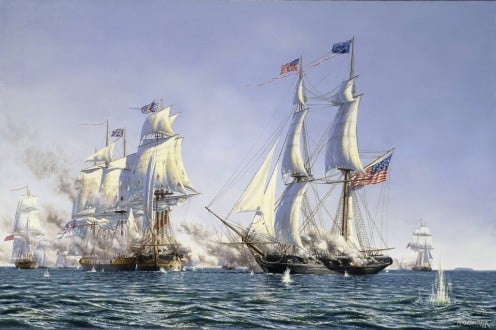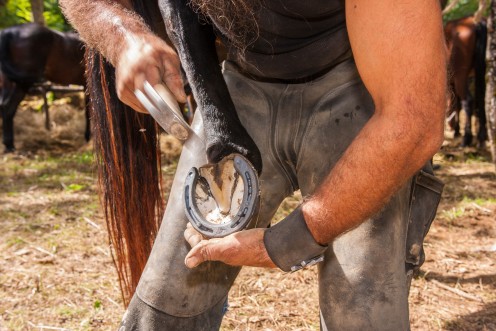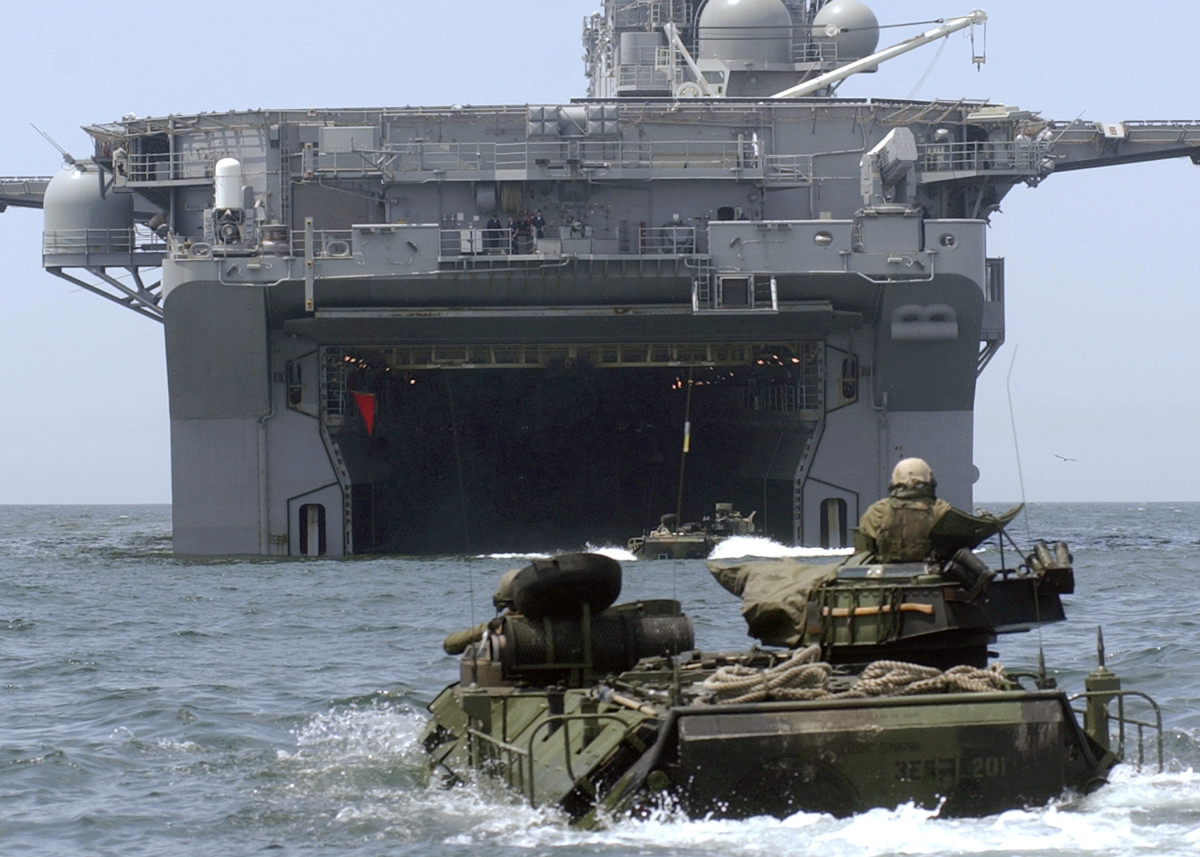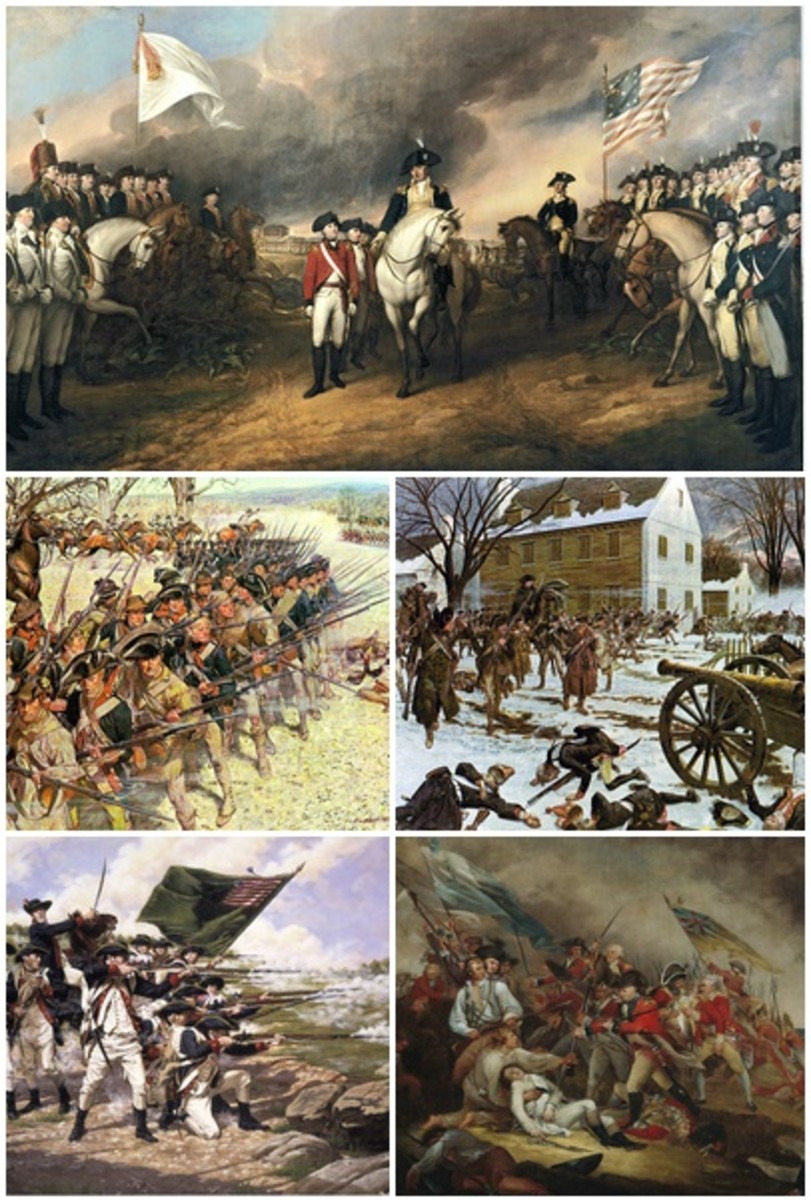Weston Wagons West - Episode F7 - Ferrell Dealt With The Threats Of The War
American naval forces defeated the British Lake Squadron

Ferrell Kept Hard at Work Within His Personal Priorities
With the war with the British well under way in 1812, Ferrell had three things on his mind. First, he had to continue to take care of the needs of his family. Second, he had regular militia duty and training which now was on high alert. And, finally, Julia was pregnant again and due in the fall. He was pleasantly surprised that his work kept him very busy and it was paying work. People needed their horses to be in excellent condition, especially those in the militia who knew they might be called to active duty on short notice. In addition, Ferrell was getting increased blacksmith work as neighbors wanted to assure all their tools were in good working order, and, there were some orders for war related items that he had built a good reputation for making.
The local militia did not expect to be called to become part of the national army effort. However, there were real concerns that the “Indian menace” and the British army in Canada might spill south into northwest Ohio which was still vulnerable to such activity, should events move in that direction. The Fall of Detroit in August was especially alarming to everyone throughout the state of Ohio. General Hull had surrendered his fort without even a fight. He said it was to save the hundreds of civilians living there. [I, the author, agree with General Hull, even though he was court-martialed for his actions. Those civilians included my ancestors, including a child who became my 2nd great-grandmother. If she had been killed in the Indian massacre that was sure to have taken place…I would not exist today.]
On October 25, 1812, Julia gave birth to a healthy baby girl. They named her Vesta, after Julia’s mother. She was surrounded by her loving and caring parents and brothers, and was the center of their lives for some time to come. They kept any thoughts of war and that Ferrell might be caught up in it separate in their minds from their everyday lives. But, how long could they do that?
Ferrell was a farrier by trade and his sons would follow

Ferrell Monitored The Progress of the News of the War
In September, 1813, however, big positive news was received from Lake Erie. A young American naval officer, twenty-eight-year-old Oliver Hazard Perry, had succeeded in building a stout fleet of small ships on the lake. In the battle of Put-In-Bay, he defeated the British Lake Squadron. His famous message was: “We have met the enemy, and they are ours.” A Marietta headline read: “GLORIOUS NEWS!”
After U.S. naval forces took control of Lake Erie, the British and their Native American allies retreated into Upper Canada. In October of 1813 at the Battle of the Thames, American forces won a decisive victory over British forces and Tecumseh and his followers in a battle in which Tecumseh was killed and his following dispersed. With these battles, the war moved elsewhere and the likely involvement of Ferrell’s militia comrades in the war diminished considerably. They continued their regular drills, of course, but the urgent tension was no longer there that had been nearly debilitating. Now, they could concentrate on training, but also resumed some related social activities. Ferrell had almost forgotten how important the social aspects of the militia activities had been to him. Now, he was returning to his habits of making business contacts as he enjoyed the returning social activities.
On the evening of August 24, 1814, a British expeditionary force had seized Washington, burned the capital and burned the White House. President Madison and Congress had been forced to flee. Having accomplished their mission, the expeditionary force withdrew with the intent of attacking Fort McHenry in Baltimore. However, with the U.S. flag still flying following that attack, and several of the British military leaders falling in the attack, the expeditionary force retreated to sea to end that episode of the war. Slowly, the capital returned to the ‘new normal’ which included extensive rebuilding and renovation.
Then, in January of 1815, came the stunning news that an American army under General Andrew Jackson had won a crushing victory over the British in a battle in New Orleans. On top of that, word came that the war had ended. Peace had already been signed by peace commissioners of both sides in Ghent on Christmas eve. Peace had returned to America.
They had another baby girl

Ferrell Soon Found a Full Life, Moving Ahead
In July of 1814, Ferrell and Julia was blessed with another baby girl. They named her Wanda, after a favorite aunt, Julia’s mother’s sister. With the conclusion of the conflict with Britain, the country slipped into a sustained period of peace and prosperity. The Marietta area was included in this era this time as well.
In March of 1816, son Joe celebrated his 12th birthday. In accordance with Weston family tradition, this was also the time that Joe was to enter into his farrier apprenticeship with his father. Joe had been faithfully attending the local school to obtain his education and enjoyed doing that. So, working together, they came up with a schedule of apprenticeship work that worked around his needs to continue his education. His parents, Ferrell and Julia, realized that with modern times upon them, Joe would need both his education and his work skills to be successful in this world and in the future.
Ferrell and Julia were also impressed that seven-year-old Ferris also showed great interest in what his big brother, Joe, was doing. He seemed to want to be a part of both continuing his education and following the farrier apprenticeship activities. They decided to encourage that interest. If it worked out, it would certainly make his own eventual apprenticeship easier and more productive. Meanwhile, Julia reveled in her two young daughters. She never would forget her Rosetta, but having both Vesta and Wanda as her pride and joy went a long way in filling that gap in her life. These little ones enjoyed being dressed in frills and lace and played well, together. They also enjoyed occasional visits with the neighbors and playing with the other children.
Note by the author
The Fx and Hx series of historical fiction family saga stories consist primarily of characters that are fictional. Any real persons, Dolan, Barker, Cutler, Hildreth, and Putnam, for example, are used here fictitiously. The Dolan family in Marietta were actual direct ancestors of the author’s wife. Two of the Dolan sons, John and James, were her third great-grandfathers. She and I have visited the area doing family history research. Activities and events are consistent with known historical facts, but are entirely fictitious. Cousins of these Weston characters, the Jacob and Levi Weston characters, were first created as a part of “The Homeplace Saga” stories. The first 20+ episodes of this Lx series filled in the early years of the lives of Levi, Jacob and their family, also descendants of Thomas and Fred Weston. The author first created the characters Joe, Jake and Hank Weston in 1998 (they had not been published prior to this hub series).





